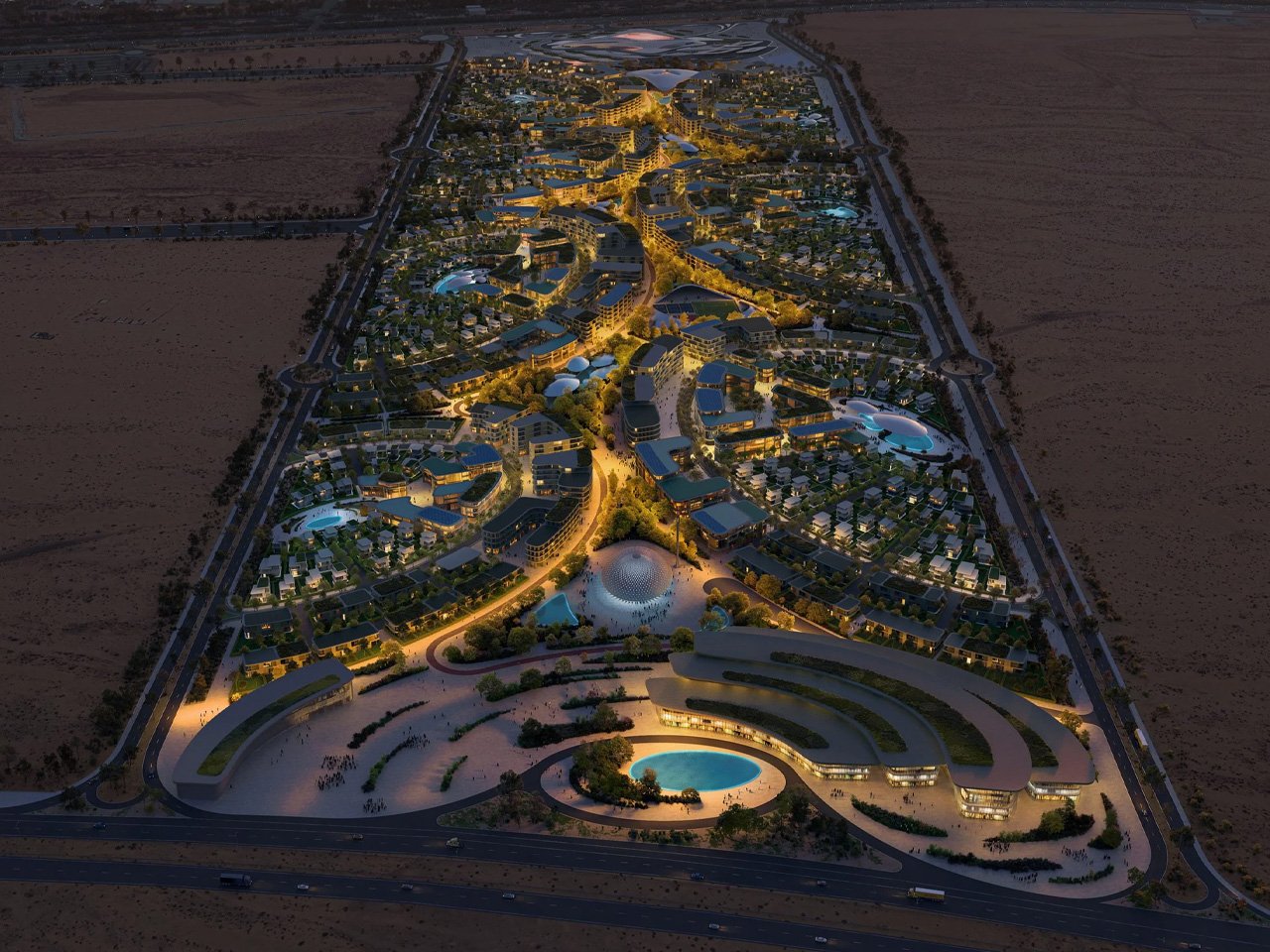Khalid Bin Sultan City, recently unveiled by Zaha Hadid Architects and developed by BEEAH Group, reimagines urban life at the edge of Sharjah’s desert. The city’s master plan is built around a walkable layout, prioritizing year-round comfort and seamless integration with the landscape. Designed across a 1.5-kilometre expanse, the city’s defining feature is a shaded, two-kilometre-long green spine that connects neighborhoods, commercial districts, and cultural venues, all while responding to Sharjah’s climate and social needs.
Central to the city’s vision is a system of seven compact neighborhoods, each within a five-minute walk of the central oasis. These districts are structured to encourage interaction, with plazas, tree-lined walkways, and colonnaded facades that offer both aesthetic appeal and practical shading. Community life is further anchored by civic venues, cultural centers, and incubator spaces designed to foster local entrepreneurship and creativity. The layout is engineered to reduce reliance on cars, making public spaces and daily essentials easily accessible on foot or by bicycle.
Designer: Zaha Hadid Architects
Emphasizing sustainable urbanism, Khalid Bin Sultan City incorporates renewable energy, recycled water systems, and AI-powered infrastructure. The city’s smart systems regulate energy use, optimize mobility, and support a zero-waste ethos, reflecting the environmental priorities of both BEEAH Group and Zaha Hadid Architects. Passive cooling strategies, such as shaded pathways and native planting, mitigate the effects of high temperatures, creating a more comfortable outdoor environment throughout the year.
The master plan draws architectural cues from the nearby BEEAH Headquarters, also designed by Zaha Hadid Architects, whose fluid, dune-like forms inform the city’s aesthetic and spatial organization. This approach supports a cohesive visual identity, connecting the city’s built environment with the surrounding landscape. At the same time, the flexibility of public spaces accommodates a range of activities—from wellness programs and outdoor sports to art installations and social gatherings—allowing the city to adapt to evolving community needs.
A significant feature is the integration of digital connectivity and mobility solutions. Residents benefit from decentralized digital identities and AI-enhanced urban management, which streamline everything from security to transportation. By embedding technology into the city’s fabric, the design aims to deliver efficient, user-friendly services without compromising privacy or community interaction. This blend of advanced systems and human-centered design reflects a broader trend in next-generation urban planning.
Khalid Bin Sultan City is a model for how cities can balance growth, sustainability, and livability. Its focus on walkability, resource efficiency, and cultural vibrancy provides a template for future developments in the region and beyond. As Sharjah continues to expand, this project illustrates the potential for architecture and planning to create resilient urban environments that serve both people and the planet.
The post Zaha Hadid Architects Is Shaping A Climate-Responsive & AI-Powered Smart City In The UAE first appeared on Yanko Design.

